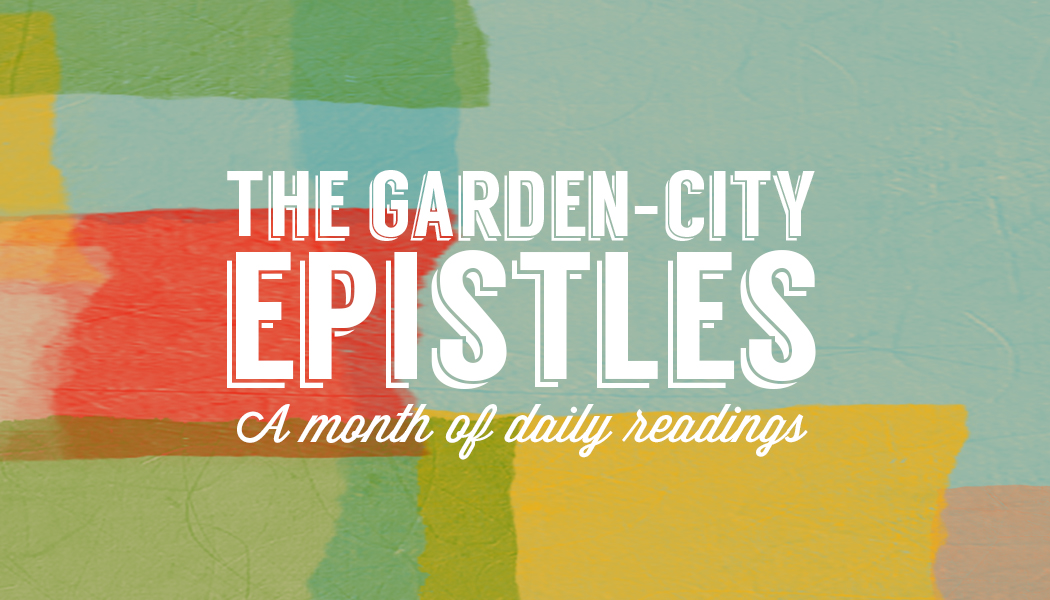This letter was written to Nate and Mel Evans—champions of Jackson’s youth and pillars of our church. I love you both.
You must have a few special places—significant landscapes, restaurants where you shared important moments, vacation destinations that trigger fun memories. You probably think about these places and feel an attachment, not only to their geography, but to everything that happened there. And, if we really cared to analyze it, I think you’d agree that it’s what happened that made that place special, even acknowledging that some special moments only happen because we’re inspired by our location, what we remember is what we did and how we felt and what it all meant at the time.[1]
We have a tree in our yard that our family refers to as the Happy Tree. When we first moved to Michigan, Jacob used to cry inconsolably. Nothing would comfort him. He was twenty months old, and he missed his old home. But when I would hold him and show him this tree, just your average oak in your average American back yard, Jacob would instantly stop crying and begin to smile. Now, whenever I look at that tree, I feel happy, too. It is an instant teleportation into a library of joyful recollection.
I used to think heaven would feel like the Happy Tree, that every moment in the presence of God would have that same mourning-to-mirth sensation. It might. I hope it does. But something funny happened to me while I was studying Revelation. I realized the New Jerusalem—the City of God descending to the world—isn’t a place, but a people.[2]
We are the place where God’s imagination, vocation, and connection are located. “The most important city in the world,” says theologian Jon Dennis, “is simply God’s people…we’re an enduring city, one that will outlast every other city…a city of light within a city of darkness.”[3]
We live in the center of God’s government, God’s creativity, and God’s peace. Every place we are is the place where God is in control.[4] We are in his roving kingdom,[5] experiencing life on earth as it is in heaven.[6]
This was difficult for me to accept because I don’t often feel as though I’m experiencing all the scripture promises. The idea that I’m the City of God seems goofy and vain.
But then I realized I’m not the people of God. We are. It takes people coming together before God’s city is manifested in the world.[7]
It all began to make sense for me when I recognized that I have the same category of associations with the Happy Tree as I do with my memories of youth group prayer meetings. As a teenager I was full of zeal and passion for God. We’d pray for hours, believing God would meet us and transform us. He did. He still does. But the point I’m trying to make is that those meetings felt like sacred space. Not because of the room they were in—they were in all sorts of rooms, but I can’t recall what any of them looked like—but because, when we came together, we created a new kind of space entirely. That’s the City of God. That’s the people of God gathering, binding, connecting, believing.
Martin Heidegger, the famous philosopher, says a person is actually “dasein,” which we literally translate as “a being there.” He meant much the same thing as poet Jose Ortega y Gasset, who said, “tell me the landscape in which you live, and I will tell you who you are.” All experience is placed experience, because the things that happen to us happen somewhere. And the uniqueness of God’s City is that it isn’t any particular place. It’s a place we create. It’s a place we inhabit. It’s the place where we live together in the presence of the Lord.
Our responsibility is to create that space more often, to recognize the power of that space, and to enter into it as frequently as possible. And it’s not as simple as getting Christians together for coffee. It requires us to acknowledge the Spirit and make ourselves available to him. That could happen over coffee, but it rarely happens without our intention to foster it or our desire to experience it.
I hope you have that desire in all you do.
[1] Walter Brueggemann, The Land: Place as Gift, Promise, and Challenge in Biblical Faith, (Minneapolis: Augsburg Fortress, 2002), 4.
[2]In Revelation 21 John refers to the New Jerusalem as the bride of Christ. But elsewhere, Christ’s bride is unambiguously defined as us—his people. We are the New Jerusalem. It’s not a place, it’s a people. Which means God makes his dwelling as much on us as in us. He lives in us like I live in Michigan.
[3] Dennis, Christ + City, 147-148.
[4] Daniel 4.22.
[5] Luke 17.21.
[6] Matthew 6.10.
[7] Matthew 18.20.
fossores
Related posts
Categories
Category Cloud
Tag Cloud
Recent Posts
- Victors and Victims November 6, 2018
- 3 Hacks for Happiness October 29, 2018
- Hope Against Death September 20, 2018
- The Shape Of The Cross September 19, 2018


